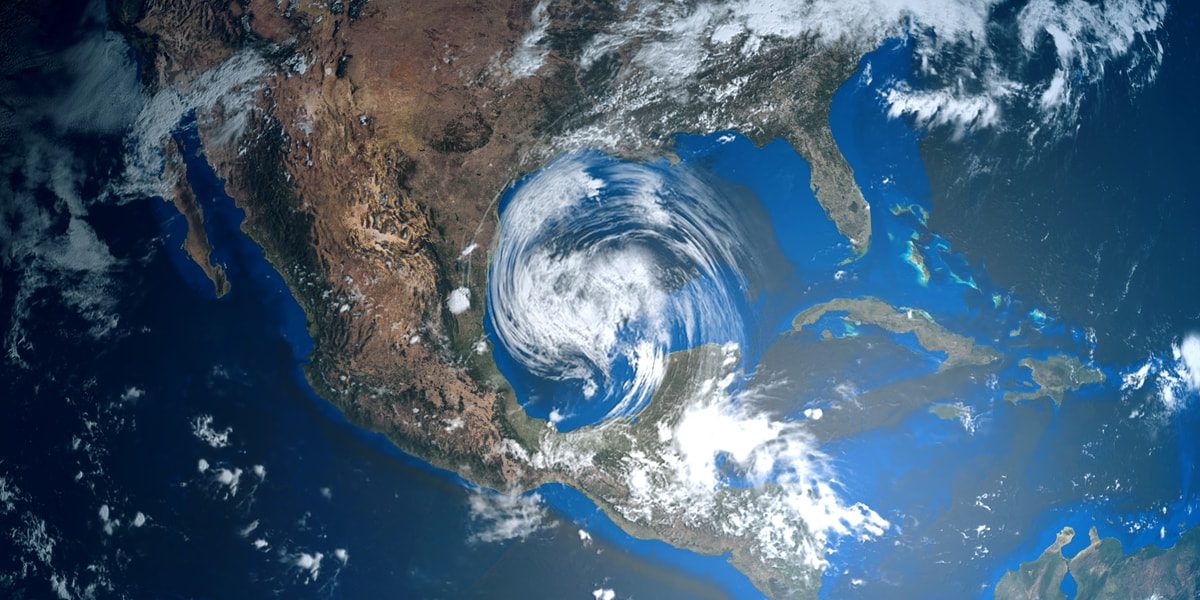August 30, 2017 | Events, Industry Insights
Freight Industry Pounded in the Wake of Harvey

Hurricane Harvey’s Category 4 wind speeds and storm surge estimated at 6 to 12 feet has unleashed catastrophic and unprecedented flooding throughout the greater Houston, Texas area, and is considered to be one of the most destructive storms in the nation’s history as it continues to pummel the region. It is “one of the largest disasters America has ever faced,” Governor Greg Abbott said, warning against expecting anything resembling recovery any time soon, or a return to the way things were. “We need to recognize it will be a new normal, a new and different normal for this entire region.”
The region has been shattered by the loss of life and hundreds of thousands of evacuees and displaced residents reeling from the effects of Harvey. In addition, there has been unimaginable devastation to homes and businesses, eight oil refineries, with about one-eighth of the nation’s refining capacity, shut down because of the storm, and both of Houston’s airports were closed. The shipping industry has also been impacted with trucking fleets, railroads and shipping lines rerouting cargo and setting up alternate supply lines as Harvey continues to disrupt freight traffic across southeast Texas. In fact, according to the Greater Houston Partnership and the consultancy Moody’s Analytics, the storm across the Texas Gulf Coast has decimated Houston’s usually rapid commercial traffic by land, air and sea and could cost the city up to $50 billion in economic activity and property damage combined,
The Wall Street Journal reports that seaports in Houston and Corpus Christi are closed to most ships since before Harvey made landfall last Friday, and rising waters from days of heavy rains and catastrophic flooding are threatening long stretches of highways and railroad tracks, bringing freight transportation in a major American hub to a virtual standstill.
In fact, many freight companies are unclear when they will be able to resume operations. The storm is expected to linger over the Texas coast until later in the week. Even after the weather improves, it could be days before floodwaters recede enough to allow dockworkers back into ports, or trucks to resume normal routes.
According to the most recent data from DAT Solutions, the number of Houston-area trucking runs requested plunged 80% this past Sunday. Union Pacific Corp. has halted all freight rail traffic bound for Houston and surrounding areas, and two Maersk Line container ships remain anchored in the Gulf of Mexico, joining oil tankers and cruise ships waiting for Houston’s port to reopen.
The storm’s impact will affect the nation’s transportation network, impacting retailers and manufacturers way beyond Texas, reported Fox News. “Other cities could see a shortage of trucks because big rigs aren’t making their scheduled trips from Houston, and railroads could see backlogs as far away as Arizona,” said Noël Perry, chief economist at Truckstop.com, an online load board.
Perry also said nearly 10% of the nation’s trucking capacity could be affected by Harvey, and that prices to book big rigs have jumped anywhere from 5% to over 20% after other large-scale weather events.
Shipping costs could rise anywhere from 5% to 22%, Perry said, based on the market’s response to past natural disasters, including Hurricane Katrina and Super Storm Sandy that hit the Northeast in 2014.
About Roanoke Trade
Roanoke Trade is a leading provider of insurance and surety solutions for transportation and logistics providers. Roanoke Claims Services is ready to help our clients affected by Hurricane Harvey. Following is the information needed to get in touch with us.
For Marine Cargo Claims:
Report your loss directly in our CoverageDock™ system. You may also reach us by phone at +1.844.283.8350 or by email at marineclaims@roanokegroup.com.
For Property and Casualty Claims:
Contact Maritza Perez or Rita Ginnow or call us at +1.800.ROANOKE. You may also email us for these types of claims at marineclaims@roanokegroup.com.
Sources: New York Times, Wall Street Journal, Fox News, Chron





